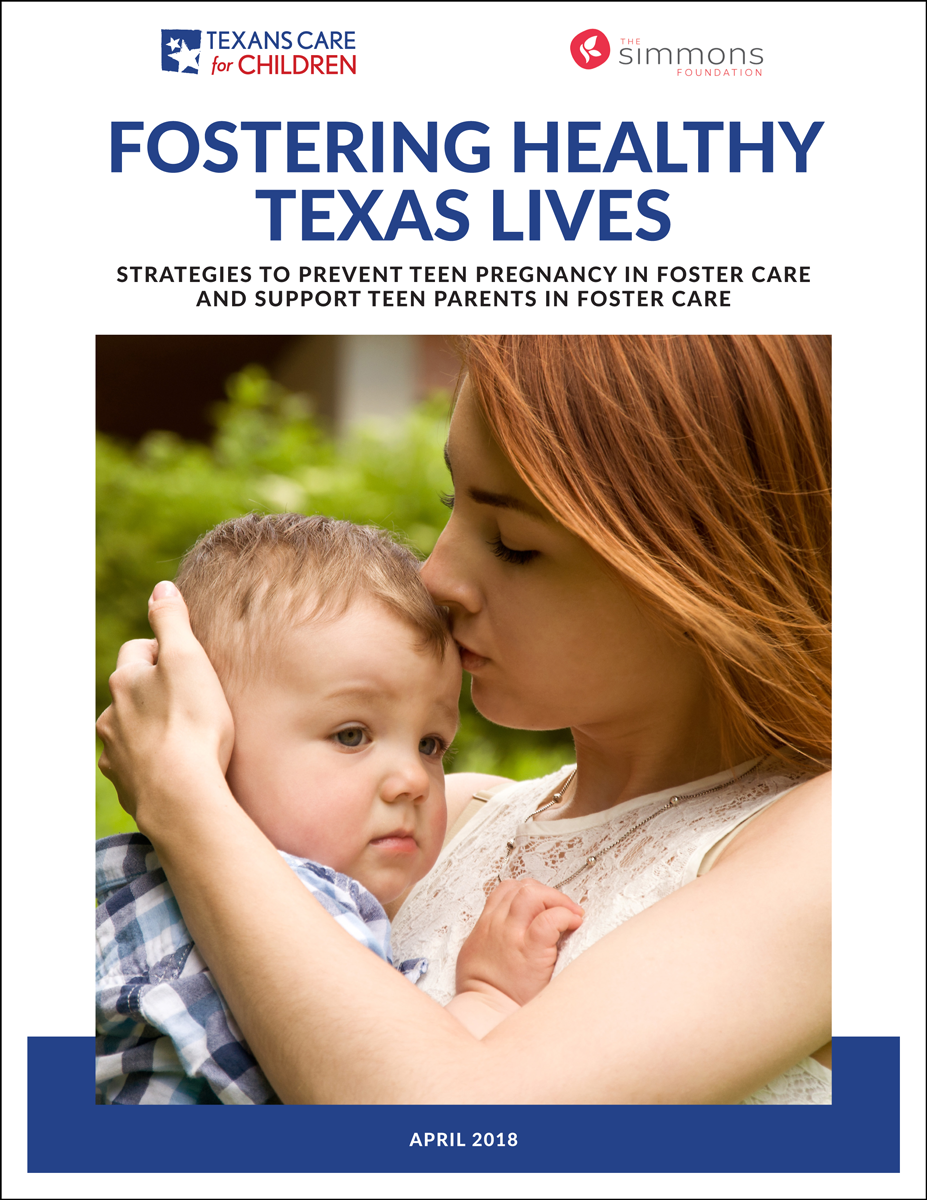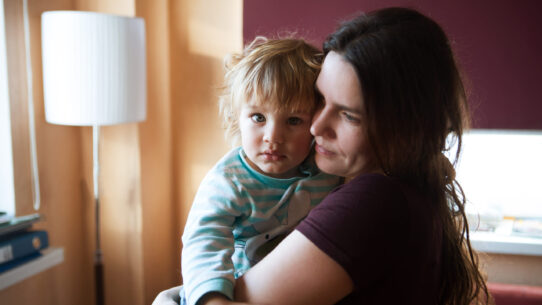
For Immediate Release
CONTACT: Peter Clark, pclark@txchildren.org, 512-473-2274
Austin – Teens in Texas foster care are almost five times more likely to become pregnant compared to other Texas teens, jeopardizing their health and education and putting them at a high risk of having their baby removed by Child Protective Services (CPS), according to a report released today by the nonprofit organization Texans Care for Children. Coming at a time when state policymakers, the courts, the media, and the Texas public are demanding improvements to the state’s foster care system, the report outlines recommendations for preventing teen pregnancy in foster care and supporting pregnant and parenting teens in foster care.
“The state of Texas took responsibility for serving as the temporary parent of these kids when it removed them from their families, and that responsibility includes helping them stay healthy and be effective parents if they have a baby during their teen years,” noted Kate Murphy, Senior Child Welfare Policy Associate at Texans Care for Children. “Many Texas leaders recognize that this is an important issue, but our research shows that it needs to be a higher priority.”
The report, titled Fostering Healthy Lives, is the most comprehensive policy report to date on the issue of pregnant and parenting youth in Texas foster care. In researching the report, Texans Care for Children collected and analyzed state and national data; reviewed current programs and policies in Texas; and conducted surveys, focus groups, and interviews with youth currently or recently in Texas foster care and with adults involved in Texas foster care.
Among other concerns, the report highlights that teen pregnancy in foster care leads to a cycle of child welfare involvement. One 2012 study of youth who exited the Texas foster care system found that children born to teens in foster care were more than twice as likely to spend some time in foster care compared to children of other mothers under age 18.
“A teen parent in foster care has already been through so much in her short life,” said Ms. Murphy. “We owe it to her and her child to do everything we can to help her raise her baby safely and successfully so CPS doesn’t have to take away her baby.”
The report includes the voices of several youth, such as Destiny, a 21-year-old former foster youth. Echoing other youth voices, she explained that:
“some girls get sexually active [because they] are looking for something, especially in the foster care system. Their parents are gone; they were split up from their siblings. They want to feel loved and they gravitate toward the first person who shows that to them.”
Major research findings in the report include the following:
In a given year, one out of every 20 girls ages 13 to 17 in Texas foster care becomes pregnant. The one-year pregnancy rate for girls in that age bracket in Texas foster care is 5.7 percent, compared to 1.2 percent among all Texas girls in that age range. Older teens in foster care face an even higher risk. Girls who remain in foster care for several years in their teens face a particularly high risk of becoming pregnant at some point during their time in care.
There are many missed opportunities to reduce the risk of teen pregnancy in foster care. For example, Texas teens in foster care are in regular contact with a number of adults — including foster parents, medical professionals, and CPS caseworkers — but in our research the majority of youth and adults agreed that these adults need more training on how to talk with youth about healthy relationships. In fact, only 41 percent of surveyed Texas providers believe they have sufficient training on the subject. Additionally, the state requires foster/adoption agencies to have a plan to assist teens in preventing pregnancy and sexually transmitted infections, but only 38 percent of the child welfare providers we surveyed agreed that their agency had a specific plan, protocol, or program in place.
New analysis shows that inadequate support for pregnant youth in foster care puts babies’ and mothers’ health at risk. Teens in foster care enrolled in Medicaid have much lower rates of timely prenatal care (60 percent) compared to other Texas teens and women enrolled in Medicaid (87 percent). Babies born to teens in foster care are much more likely to have a low birth weight (12.7 percent) compared to babies born to other teens and women enrolled in Medicaid (9.3 percent), putting the babies at higher risk of health problems and dying in infancy.
The number of teen parents in foster care is low enough for the state to provide each one of them ample support to be healthy and try to safely stay together if state leaders make it a priority. While the percentage of teens in foster care who become pregnant and have babies is very high, according to state data, in 2017 the Texas foster care system included 332 pregnant youth and 218 parenting youth. Forty-eight infants born in 2017 to youth in foster care were subsequently placed in foster care in the same year. The first step to improving support to teen parents in foster care and their babies is to determine the shortage of foster homes that are equipped to support teen parents.
###



